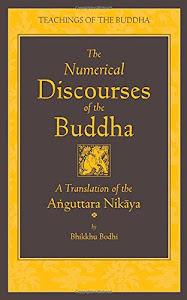
| Titre | The Numerical Discourses of the Buddha: A Complete Translation of the Anguttara Nikaya |
| Fichier | the-numerical-discou_YFqrZ.epub |
| the-numerical-discou_f9jIo.mp3 | |
| Classification | AAC 192 kHz |
| Nombre de pages | 139 Pages |
| Une longueur de temps | 47 min 50 seconds |
| Taille | 1,303 KiloByte |
| Libéré | 2 years 7 months 6 days ago |
The Numerical Discourses of the Buddha: A Complete Translation of the Anguttara Nikaya
Catégorie: Fantasy et Terreur, Adolescents
Auteur: Henry-David Thoreau, Nintendo
Éditeur: Stan Lee, Susan Briscoe
Publié: 2018-12-26
Écrivain: Helen Harper
Langue: Polonais, Sanskrit, Albanais, Roumain
Format: pdf, epub
Auteur: Henry-David Thoreau, Nintendo
Éditeur: Stan Lee, Susan Briscoe
Publié: 2018-12-26
Écrivain: Helen Harper
Langue: Polonais, Sanskrit, Albanais, Roumain
Format: pdf, epub
Substance theory - Wikipedia - Substance theory, or substance–attribute theory, is an ontological theory positing that objects are constituted each by a substance and properties borne by the substance but distinct from it. In this role, a substance can be referred to as a substratum or a thing-in-itself. Substances are particulars that are ontologically independent: they are able to exist all by themselves.
A Course in the Pali Language | BODHI MONASTERY - It thus aims to enable you to read the Buddha’s discourses in the original as quickly as possible. The textbook for the course is A New Course in Reading Pali: Entering the Word of the Buddha by James Gair and Karunatilleke (1998, Motilal Banarsidass Publishers, Delhi, India. ISBN 81-208-1440-1). The Pali grammatical tables were designed by
Three Ages of Buddhism - Wikipedia - Gautama Buddha entrusts them instead of his more commonly known major disciples with this task since the Bodhisattvas of the Earth have had a karmic connection with Gautama Buddha since the beginning of time, meaning that they are aware of the Superior Practice which is the essence of Buddhism or the Dharma in its original, pure form. Ksitigarbha is also known for his vow to take ...
Buddha (Stanford Encyclopedia of Philosophy) - The Buddha (fl. circa 450 BCE) is the individual whose teachings form the basis of the Buddhist tradition. These teachings, preserved in texts known as the Nikāyas or Āgamas, concern the quest for liberation from the ultimate aim of the Buddha’s teachings is thus to help individuals attain the good life, his analysis of the source of suffering centrally involves claims ...
Libros en Google Play - He can’t even remember his own name, let alone the nature of his assignment or how to complete it. All he knows is that he’s been asleep for a very, very long time. And he’s just been awakened to find himself millions of miles from home, with nothing but two corpses for company. His crewmates dead, his memories fuzzily returning, Ryland realizes that an impossible task now confronts him ...
Pali Canon Online - The Original Words of the Buddha - The Elder Mahākassapa, therefore, was able to question him at length with complete confidence about the Dhamma with specific reference to the Buddha's sermons. This interrogation on the Dhamma sought to verify the place where all the discourses were first preached and the person to whom they had been addressed. Ānanda, aided by his word-perfect memory was able to answer accurately and so the ...
Mind in Indian Buddhist Philosophy (Stanford Encyclopedia ... - Indian Buddhist analyses of the mind span a period of some fifteen centuries, from the earliest discourses of the Buddha (ca. 450 ) to the systematic developments of late Mahāyāna Buddhism (500–1000 ). Although philosophical accounts of mind emerge only within the Abhidharma scholastic traditions (roughly 150 to 450 ), their roots are found in the Buddha's teachings of ...
Twitpic - Dear Twitpic Community - thank you for all the wonderful photos you have taken over the years. We have now placed Twitpic in an archived state.
University of Kentucky on Instagram: “Like her sticker ... - @universityofky posted on their Instagram profile: “Like her sticker says, “Find your people.” College is a great place to do just that. Tag “your…”
Join LiveJournal - Password requirements: 6 to 30 characters long; ASCII characters only (characters found on a standard US keyboard); must contain at least 4 different symbols;
[pdf], [online], [free], [read], [kindle], [goodreads], [audible], [audiobook], [download], [english], [epub]


















0 komentar:
Posting Komentar
Catatan: Hanya anggota dari blog ini yang dapat mengirim komentar.